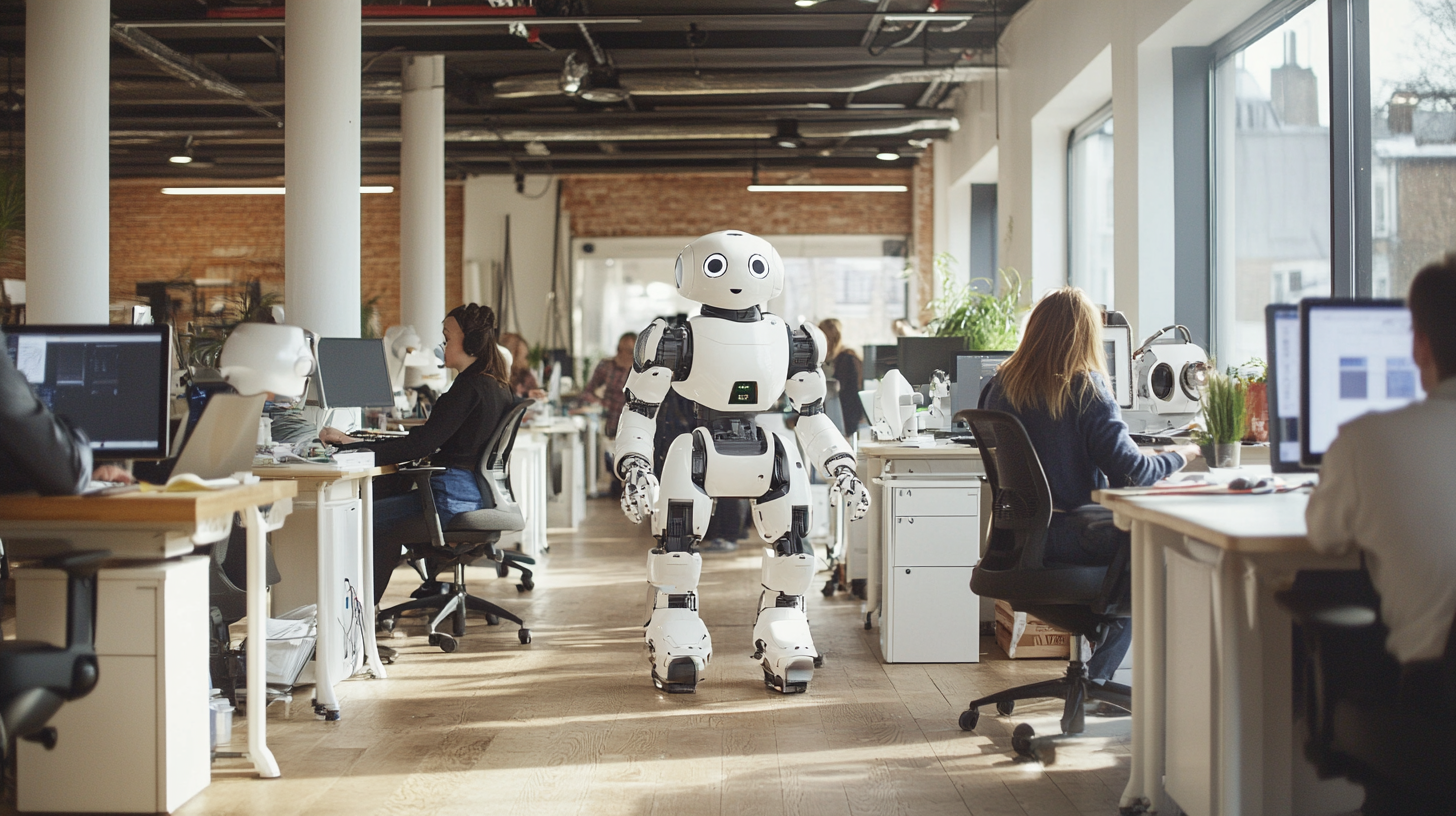In 2024, Generative Artificial Intelligence (GenAI) is revolutionizing the Human Resources (HR) landscape, offering unprecedented opportunities to streamline operations and enhance employee experiences. As organizations adapt to this technological shift, HR professionals are at the forefront of a new era in workforce management.
The Rise of GenAI in HR
Generative AI, powered by large language models (LLMs) and advanced machine learning, has democratised access to sophisticated AI capabilities. For HR departments, this technology presents a unique opportunity to:
- Process vast amounts of information from diverse data sources
- Automate multiple tasks simultaneously
- Free up HR professionals for strategic, people-centric initiatives
Creating a Hybrid Workforce
The integration of GenAI into HR operations is creating a new paradigm: the hybrid workforce. This model combines human expertise with AI capabilities, optimizing efficiency and job satisfaction.
Key Areas of AI-Driven Transformation
- Task-Oriented Automation
- Job description creation
- Document summarisation
- Persona development
- Analysis of textual and numerical data
- Process Automation
- Advanced chatbots for employee inquiries
- Digital assistants with secure company data access
- Proactive engagement through “nudge” mechanisms
- Program Automation
- “Digital twin” technology for employee journey tracking
- Streamlined data collection for administrative procedures
- Significant time savings in processes like promotions and travel audits
Real-World Impact: IBM’s AI Integration
IBM’s experience with AI integration in HR showcases the tangible benefits:
- 97% of managers utilized AI-powered digital assistants
- 94% of executives found AI-driven self-service more efficient
- 61% reduction in employee inquiries handled by HR since 2016
- 50,000+ hours saved annually through AI-assisted promotion processes
The Augmented Intelligence Approach
By viewing AI as “augmented” rather than “artificial” intelligence, organizations can create a fully integrated hybrid workforce. This approach:
- Supports workers with repetitive tasks
- Empowers focus on high-value work
- Increases job satisfaction and productivity
Analysis of HR roles from 2016 to 2023 showed significant improvements directly attributable to AI adoption, a trend expected to accelerate with GenAI.
Ethical Considerations in AI-Driven HR
While the benefits are substantial, implementing GenAI in HR requires careful consideration of ethical implications:
- High-Risk Industry Classification: HR is considered high-risk due to potential biases and significant individual impacts.
- Ethical Framework Development: Organizations must prioritize transparency, explainability, fairness, privacy, and robustness.
- Human Oversight: AI should assist decision-making, not replace human judgment.
- Trust Building: Ensure trust in data, privacy, security, and unbiased practices.
The EU AI Act and Future Outlook
The EU AI Act, approved in 2023, provides a framework for transparent, accountable, and human-overseen AI development and deployment. This legislation offers clear guidance for organizations adopting AI technologies.
Embracing the AI-Powered Future of HR
As we move further into 2024, organizations have a unique opportunity to leverage GenAI in HR:
- Assess current processes for AI integration potential
- Focus on boosting productivity and efficiency
- Aim for a more satisfied and fulfilled workforce
By thoughtfully implementing AI technologies, HR departments can lead the charge in creating more dynamic, efficient, and employee-centric workplaces. The future of work is here, and it’s powered by the synergy between human expertise and artificial intelligence.

